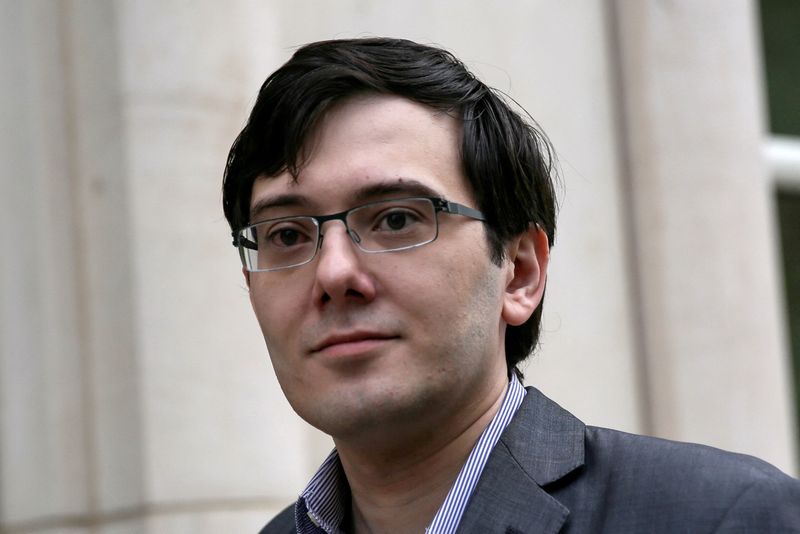By Jonathan Stempel
NEW YORK (Reuters) -Martin Shkreli, known for once hiking the price of a life-saving drug more than 4,000%, cannot return to the pharmaceutical industry after a federal appeals court on Tuesday upheld his lifetime ban.
A three-judge panel of the 2nd U.S. Circuit Court of Appeals in Manhattan said a lower court judge acted properly in imposing the ban and ordering Shkreli to repay $64.6 million because of his antitrust violations.
The case had been brought by the U.S. Federal Trade Commission (FTC), joined by New York, California, Illinois, North Carolina, Ohio, Pennsylvania and Virginia.
Shkreli, 40, became notorious and gained the sobriquet "Pharma Bro" when, as chief executive of Turing Pharmaceuticals in 2015, he raised the price of the newly-acquired antiparasitic drug Daraprim overnight to $750 per tablet from $17.50.
He later served more than four years in prison following his 2017 conviction for defrauding investors in two hedge funds and scheming to defraud investors in another drugmaker.
In imposing Shkreli's ban in January 2022, U.S. District Judge Denise Cote cited his "particularly heartless and coercive" tactics in monopolizing Daraprim and keeping generic rivals off the market.
Daraprim is used to treat toxoplasmosis, including in AIDS patients.
The appeals court rejected Shkreli's arguments that Cote's injunction was overbroad, and unconstitutionally chilled his free speech by preventing him even from using social media to discuss the pharmaceutical industry.
"Given Shkreli's pattern of past misconduct, the obvious likelihood of its recurrence, and the life-threatening nature of its results, we are persuaded that the district court's determination as to the proper scope of the injunction was well within its discretion," the court said.
Shkreli's lawyer Kimo Peluso said the sanctions "go well beyond established legal limits," and a further appeal was possible. He also said the appeals court suggested during oral argument that Shkreli might ask Cote to modify or clarify her injunction.
Henry Liu, director of the FTC bureau of competition, said the decision is "a win for consumers seeking affordable, lifesaving medication," and shows how corporate executives can be personally liable for anticompetitive conduct.

Since his May 2022 release from prison, Shkreli has worked as a software developer and as a consultant for a law office.
The case is Federal Trade Commission et al v. Shkreli, 2nd U.S. Circuit Court of Appeals, No. 22-728.